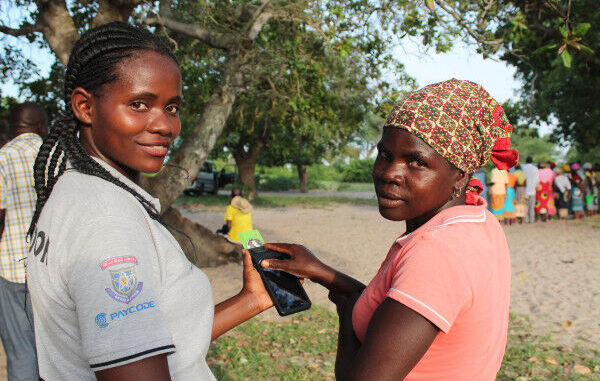
The cashless policy coupled with the change in the naira note has presented a humongous challenge for individuals and businesses. People are trying to withdraw the new naira notes but being offered the old notes or even coins. There is a brouhaha in a town that’s already frustrated with financial services provision. Despite the huge prospects of fintech, the question remains when are we going to take the big leap. The big leap towards financial inclusion driven by financial technology.
It’s nice to see bread sellers, vulcanizers, roadside food sellers and petty traders asking for bank transfers – people are coming to terms with the new dispensation and it is anticipated that this should be that time for the right turn. But this has not been easy for many people and businesses to adopt, with many struggling to come to terms with transferring money to pay for their beans and bread, Nigerians have been a cash-based economy but reflecting on the ongoing issue, should we struggle with this new arrangement and push toward financial technology adoption.
Should we struggle now as Nigerians and as consumers so that we can take that jump or we want to keep pushing our suffering (and reliance on cash) for the future. From a personal point of view, I believe it’s imperative to start pushing for these drive.
As earlier reiterate in my post, it is expected that this cashless policy will be well adopted and key stakeholders will act. However it appears we are not ready. The Central Bank has not made enough provision for the new cash, banks are struggling to cope with demands and even POS operators are not excluded from this mess.
I would like to acknowledge what Moniepoint is doing as they cash on this vibe. Nice to see what those entrepreneurs are doing to receive payment via their banks. Nice to see employees paying their staff directly into their bank account. These are efforts to reduce the reliance on cash.
While there is the clamour for cash, the politicians calling for postponement to the deadline, Supreme Court and Council of State intervening, I am of the opinion that we should take this lemon and make lemonade. The deed has been done already, everyone is stranded and now we need to start pushing for that digital transformation we need in the financial sector. People need to see the huge benefits in a cashless economy, we need to see the prospects of fintech and embraces this digital transformation for our own sanity.
While recognising the inherent challenges with financial services in Nigeria – financial exclusion, increasing bank charges, internet connection to process bank transfer and low technology adoption in Nigeria, Individuals and businesses need to act and respond to this struggle by changing their consumer behaviour and enhancing their business operations.
I believe we need to acknowledge that we have taken a step back by not capitalising on this struggle to make the much needed leap forward towards fintech influenced financial inclusion. Moving forward, I believe things should be done right now and not postponed and stakeholders need to take more responsibilities.
First, I would expect individuals to start patronising those who wants bank transfer. Purposely ask if you can transfer the money, ask if they have a POS, ask if you can pay through wallet. Let’s start this conversation, change people’s orientation and use that to bring them into the financial system.
Second, businesses should start exploring the opportunities to go beyond cash; it’s nice to see Danfo now accepting cowry card. The days of bringing your exact transport money and joining people to share the change is coming to an end. Businesses need to see the benefits in integrating digital payment into their businesses.
Third, fintech companies need to rise to the occasion and use this time to push their agenda. Push your message as the solution to this problem. Let people know what they can achieve in a cashless society. Let people know what they can benefit from fintech. This is time for fintech companies to shine and flaunt their innovative solutions for individuals and businesses.
Four, the traditional banks shouldn’t rest on their oars; the fintech folks are doing great exploits. While the traditional banks may still be hauled with demands for cash, they need to start intensifying their efforts to change consumer behaviour. There is need for more education, provision of alternative, and focus on digital transaction. These banks will be expected to invest in the much needed infrastructure to manage the growing demands.
Five, the policymakers and regulators need to reinforce this education and awareness, especially in those rural areas with limited access to cash. How do we get a palm wine tapper to have an account? How do we ensure the palm wine tapper can accept payment into his account? How do we ensure that the palm wine tapper can confirm the receipt of the payment? This confirmation has often been presented as an issue for cashless transaction and there is huge responsibility on the banks and their technological innovations to get things right.
While the inherent dark side of cashless economy cannot be ignored, it is imperative we start with exploring the huge prospects, especially in a country like Nigeria with huge potentials. I conclude by asserting that this is a task for all the key stakeholders – the customer, the banks, the Fintech, and central banks. How do we ensure people take this technology and use it well? It’s that vicious circle, if the infrastructure is not supported, people will feel trapped in using cash and further making it difficult to invest in the technology and then we keep postponing when to take the leap.
Mogaji wrote from United Kingdom.
END

Be the first to comment